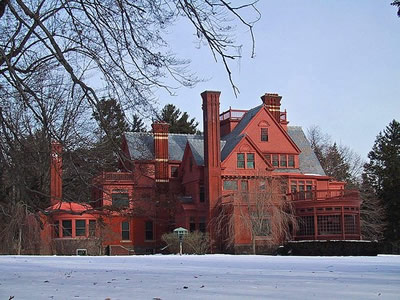[breadcrumb]

If you live in Edison, New Jersey, you only have two years from the date of your mesothelioma diagnosis to file an asbestos lawsuit against the parties responsible for your exposure to this dangerous substance. This is not a lot of time to identify your source of exposure, determine the liable parties and develop a legal strategy. You need a highly-qualified mesothelioma lawyer on your side who is experienced at advancing these claims quickly and accurately. We are available for a free consultation to discuss your legal options.
Mesothelioma Treatment Options Near Edison, New Jersey
Patients may choose the Hackensack Meridian Health JFK Medical Center for their cancer care in Edison, New Jersey. This facility is accredited by the Commission on Cancer as a Comprehensive Community Cancer Program. It provides a full continuum of services from diagnosis through treatment and recovery. Advanced, state-of-the-art diagnostic equipment is available. Patients may receive a variety of treatments, including surgery, medical oncology, stereotactic radiosurgery and radiation oncology. There is an inpatient oncology unit which includes an infusion unit. Eligible patients also have access to clinical trials. The facility also provides a range of support services.
Veterans may seek medical treatment from the Piscataway VA Clinic, a community-based outpatient clinic, part of the VA New Jersey Health Care System. This facility provides primary care services, behavioral health services, specialty care referrals to other campuses, nutrition services and social work services.
Military Bases Where Veterans Could Have Been Exposed to Asbestos and Later Diagnosed with Mesothelioma
While there are not military bases in the city of Edison, New Jersey, there are several bases within one hour of travel time to Edison. McGuire Air Force Base was established in 1941 during World War II and it’s primary mission was to ensure air global mobility. In 2005, this base merged with Fort Dix and Naval Air Engineering Station to form the joint base McGuire-Dix-Lakehurst in 2009. The Air Force currently operates the base, which is comprised of more than 42,000 acres, 20 miles from east to west and 4,000 facilities. It has over 40 commanders and 80 mission partners. More than 44,000 people are hosted at the base, including airmen, sailors, soldiers and marines.
Picatinny Arsenal’s history dates back to 1880 when it was first called the Dover Powder Depot. The Morris County site kept weapon reserves. Major improvements and expansions were made to the site, including the addition of land. A powder factory was built on the property in 1907 and its objective shifted from manufacturing to research operations. In 1911, a school to train individuals in weaponry sciences was erected. Later, the base manufactured artillery ammunition. During World War II, approximately 18,000 workers were responsible for producing bombs and shells at the base. The base was also responsible for improving and inventing weapons. Picatinny Arsenal covers more than 6,400 acres.
Members of the Navy, Air Force, Army and other branches of the military could have been exposed to asbestos during their time of service. Asbestos was an affordable and durable product, making it seemingly ideal for many military applications. Asbestos was used to construct military bases, as well as in vehicles military members used.
